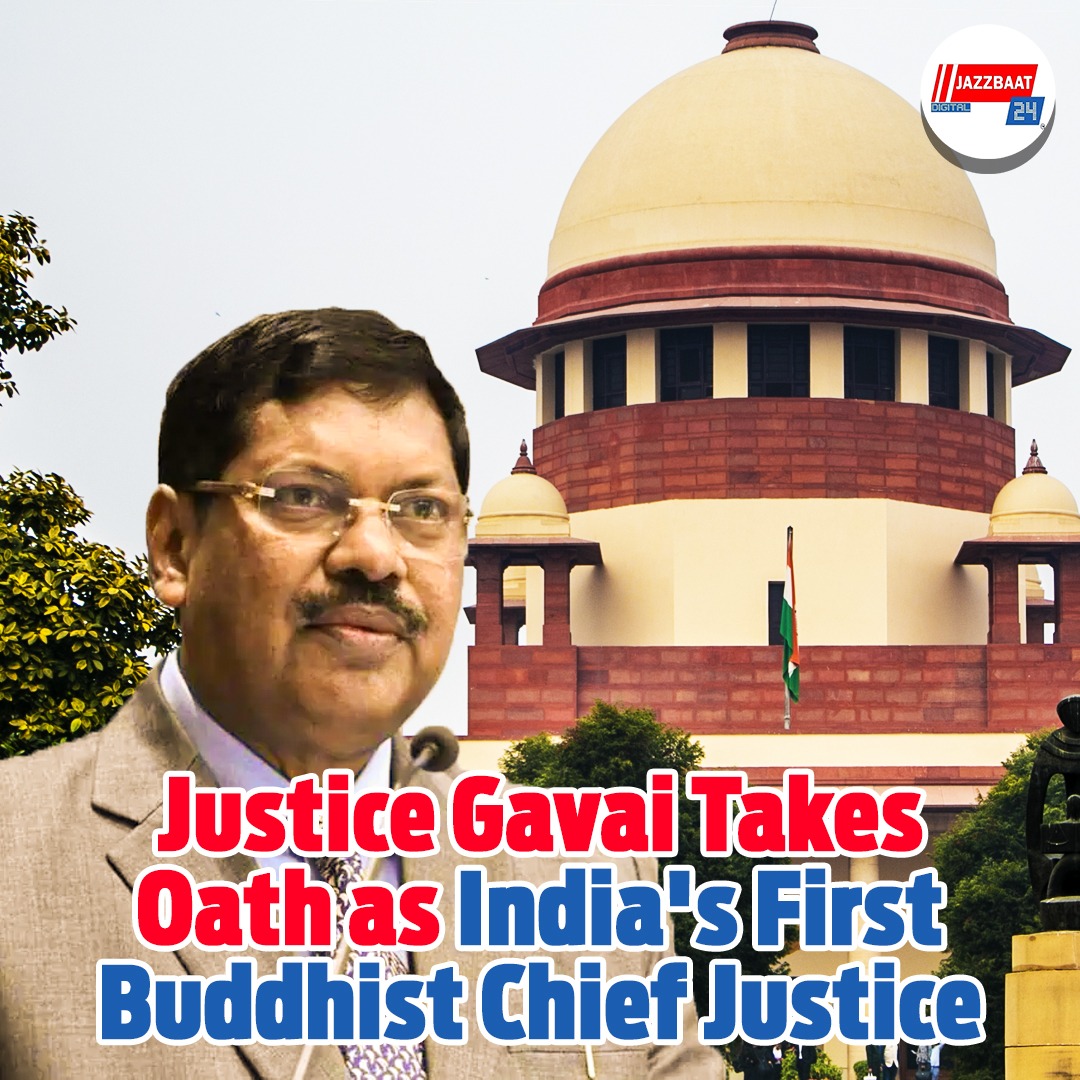
For the first time in the country's history, a person from the Buddhist community took oath as the Chief Justice of India. Justice Bhushan Ramakrishna Gavai took oath as the 51st Chief Justice of India on May 17. He took the oath in Hindi and pledged to uphold the Constitution and discharge his duties with devotion.
The oath-taking ceremony was an emotional moment. Justice Gavai received greetings from everyone with folded hands and extended greetings to Prime Minister Narendra Modi, Union Law Minister Arjun Ram Meghwal, Home Minister Amit Shah, retired Chief Justice Sanjiv Khanna and other dignitaries and family members. At a special moment, he took blessings by touching his mother's feet. Prime Minister Modi was also seen meeting the judge's mother to pay his respects. The ceremony concluded with the national anthem.
The ceremony was attended by sitting and retired judges of the Supreme Court and High Courts. After taking the oath, Justice Gavai went to the Supreme Court for tea with his colleagues and then attended the hearing of cases throughout the day. He is currently sharing the bench with Justice Augustine George Masih. He is planning to convene a meeting of all the judges soon to discuss future plans and share his views. Although the summer vacation is starting soon, some benches will continue to function.
Justice Gavai's tenure ends on November 23, 2025. He was elevated to the Supreme Court from the Bombay High Court on May 24, 2019.
Born on November 24, 1960 in Amravati, Maharashtra, Justice Gavai's father, Ramkrishna Suryavan Gavai, popularly known as 'Dadasaheb', was a former Governor of Bihar and a prominent Dalit leader. After enrolling with the Bar Council in 1985, he practiced independently in the Bombay High Court from 1987 to 1990 and later mainly on the Nagpur Bench. His expertise in constitutional and administrative law was well-known. He also served as a standing counsel for the Municipal Corporations of Nagpur and Amravati and the University.
He became an Additional Judge of the Bombay High Court in 2003 and was appointed as a permanent judge in 2005.
Known as a bold and outspoken judge, Gavai has delivered judgments in many important cases. He was part of the bench that declared the abrogation of Article 370 of the Constitution valid and ruled the electoral bond scheme unconstitutional. He headed the bench that ordered the release of Perarivalan, the convict in the Rajiv Gandhi assassination case. He was also part of a constitutional bench that recognized the right of states to sub-categorize Scheduled Castes in the Presidential List.
It is hoped that the Supreme Court will find a new direction under the leadership of Justice Gavai, who believes in humanity and constitutional values.